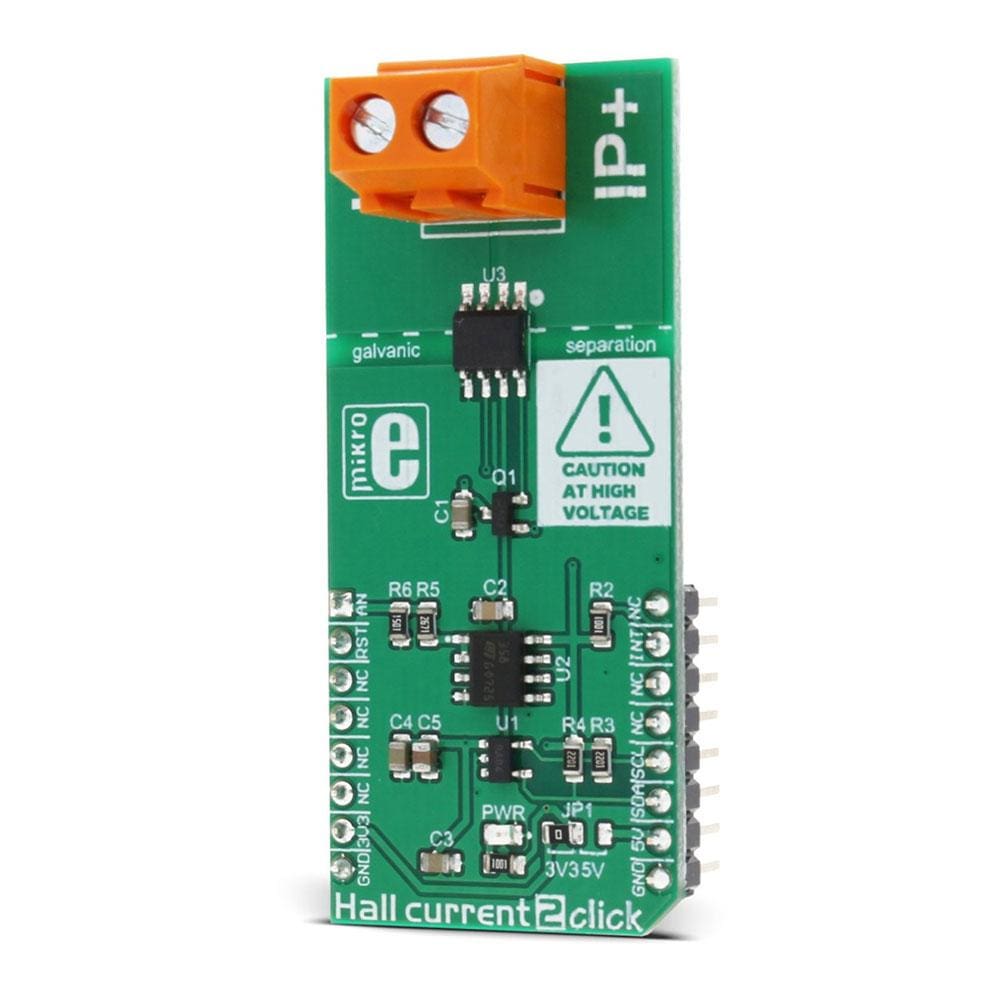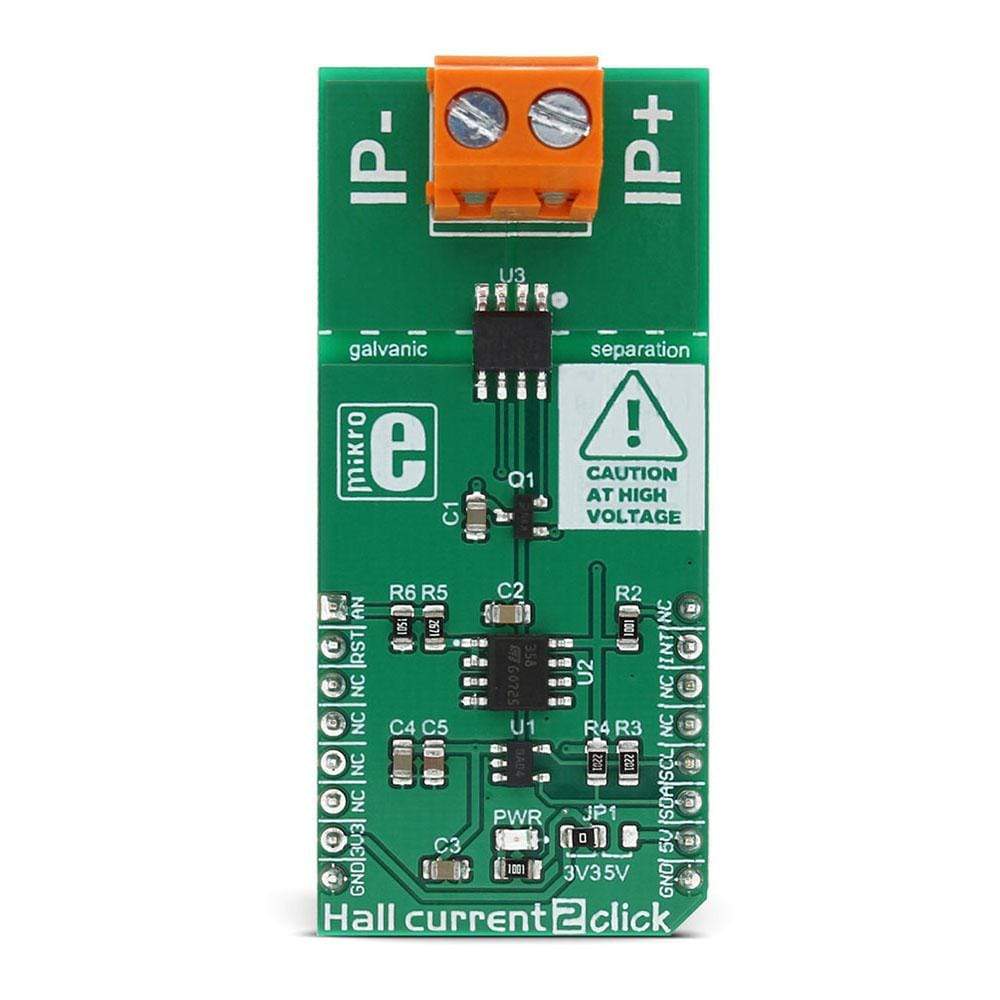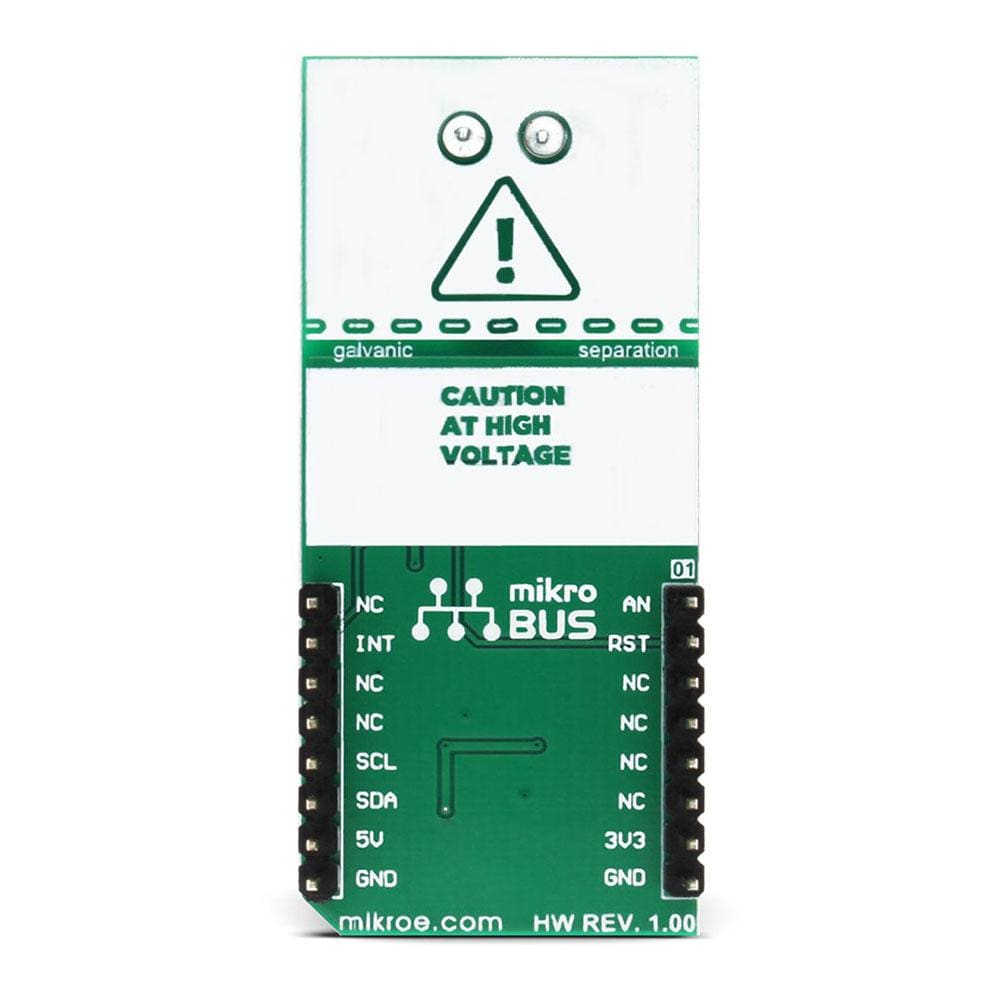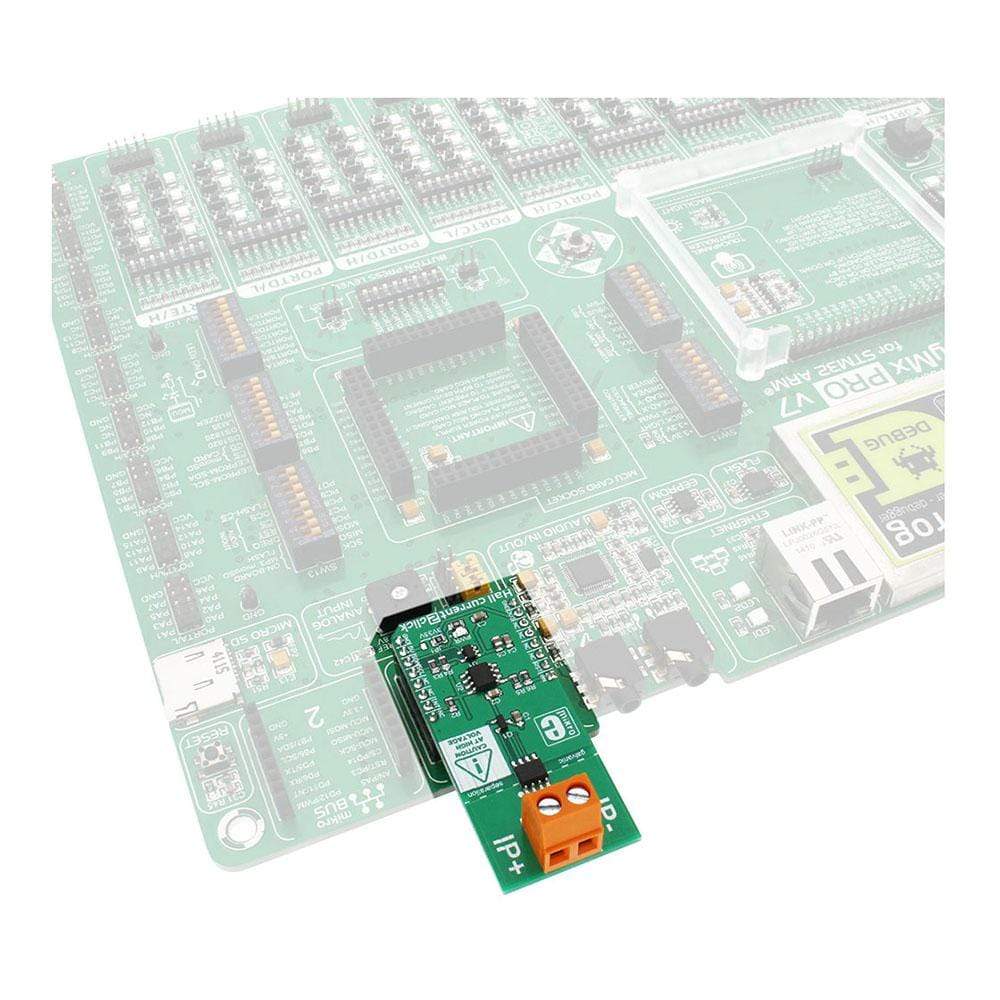



Overview
The Hall Current 2 Click Board™ is a very accurate current measurement Click Board™, which relies on the Hall effect. Its most distinctive feature is a very low series resistance of only 1.2mohm, making this device a nearly-perfect ampere meter. The maximum current which can be measured with the Hall current 2 ranges from -12A to +12A, with optimised precision. The measurement is thermally compensated and conditioned by the integrated sections of the hall sensor IC. The result is available via the I2C interface of the high precision, 12 bit AD converter, as well as in the analogue form, from the analogue pin of the microBUS, directly from the Hall effect current sensor IC. The Hall Current 2 Click Board™ does not require any current sensing resistors.
Downloads
Le Hall Current 2 Click Board™ est un Click Board™ de mesure de courant très précis, qui repose sur l'effet Hall. Sa caractéristique la plus distinctive est une très faible résistance série de seulement 1,2 mohm, ce qui fait de cet appareil un ampèremètre presque parfait. Le courant maximal qui peut être mesuré avec le Hall Current 2 varie de -12 A à +12 A, avec une précision optimisée. La mesure est compensée thermiquement et conditionnée par les sections intégrées du circuit intégré du capteur Hall. Le résultat est disponible via l'interface I2C du convertisseur A/N 12 bits de haute précision, ainsi que sous forme analogique, à partir de la broche analogique du microBUS, directement à partir du circuit intégré du capteur de courant à effet Hall. Le Hall Current 2 Click Board™ ne nécessite aucune résistance de détection de courant.
| General Information | |
|---|---|
Part Number (SKU) |
MIKROE-2987
|
Manufacturer |
|
| Physical and Mechanical | |
Weight |
0.022 kg
|
| Other | |
Country of Origin |
|
HS Code Customs Tariff code
|
|
EAN |
8606018712809
|
Warranty |
|
Frequently Asked Questions
Have a Question?
Be the first to ask a question about this.




